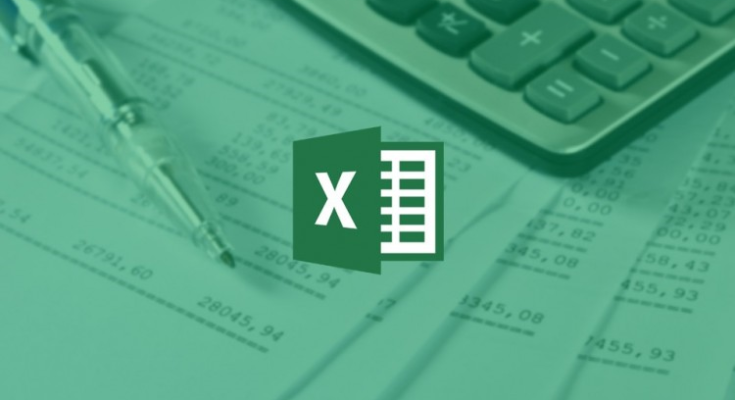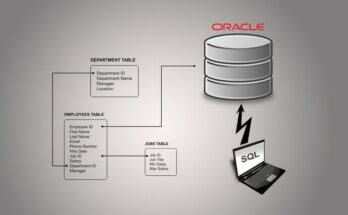In the ever-evolving landscape of finance, accountants play a crucial role in ensuring the financial health of businesses and organizations. In this digital age, proficiency in tools like Microsoft Excel has become a fundamental skill for accountants, enabling them to streamline financial processes, enhance data analysis, and make more informed decisions. Excel courses designed specifically for accountants are instrumental in providing the knowledge and skills necessary to excel in their roles. This article delves into the importance of Excel courses for accountants, explores popular course options, addresses frequently asked questions (FAQ), and concludes with the significance of ongoing learning in the accounting field.
Why Excel Skills are Essential for Accountants
Accountants are responsible for managing financial data, performing complex calculations, and generating financial reports. Excel, as a versatile spreadsheet software, empowers accountants to efficiently handle these tasks and more. Here are some compelling reasons why Excel skills are essential for accountants:
- Data Management: Excel allows accountants to organize, sort, and filter large datasets with ease. It provides a structured platform to store financial data, making it accessible for analysis and reporting.
- Advanced Calculations: Excel is equipped with numerous functions and formulas that simplify intricate calculations such as depreciation, loan amortization, and forecasting. This reduces the margin for error in financial computations.
- Data Analysis: Excel offers robust tools for data analysis, including pivot tables, data validation, and goal seek. Accountants can use these features to extract meaningful insights from financial data.
- Efficient Reporting: Accountants can create professional financial reports, balance sheets, income statements, and charts in Excel. The software enables customization, allowing them to tailor reports to meet specific business requirements.
- Time Efficiency: Excel automates repetitive tasks through macros and VBA (Visual Basic for Applications). Accountants can save significant time by automating data entry, report generation, and other routine processes.
- Accuracy and Auditability: Excel’s formula auditing and error-checking tools help accountants identify and correct errors in their work, ensuring financial accuracy and compliance.
- Scenario Analysis: Accountants can use Excel to conduct scenario analysis, which is valuable for assessing the impact of different financial decisions on a company’s performance.
- Collaboration: Excel supports collaboration with colleagues by allowing real-time editing and cloud-based sharing. This facilitates teamwork in financial projects.
Given these advantages, it’s evident that Excel proficiency is not merely a desirable skill but a fundamental requirement for accountants in today’s competitive job market.
Excel Courses for Accountants
Now that we understand the significance of Excel skills for accountants, let’s explore some of the popular Excel courses tailored to meet their specific needs:
- Microsoft Excel for Accountants (Online Courses): These courses are designed to cover the essential Excel skills that accountants need, such as data entry, formula creation, pivot tables, and financial modeling. Many institutions offer online courses that allow accountants to learn at their own pace, making it a convenient option for working professionals.
- Excel for Financial Analysis and Accounting (Intermediate to Advanced): These courses are ideal for accountants looking to enhance their Excel skills. They cover topics like financial modeling, advanced formulas, and scenario analysis. The courses provide practical, hands-on experience with real-world financial data.
- Advanced Excel and VBA for Accountants: For those who want to take their Excel skills to the next level, courses that include VBA (Visual Basic for Applications) are a great choice. VBA allows accountants to automate complex tasks, which can significantly boost efficiency.
- Certified Public Accountant (CPA) Exam Prep Courses: Excel is an invaluable tool for those preparing for the CPA exam. Courses that integrate Excel into the exam preparation curriculum help candidates master the software while preparing for a critical certification.
- Corporate Financial Modeling Courses: These courses are specifically designed for financial professionals, including accountants, who want to develop advanced financial modeling skills. They focus on creating financial models, conducting sensitivity analysis, and building business cases in Excel.
- Customized In-House Training: Some organizations opt for customized in-house Excel training programs to ensure that their accounting team is proficient in the specific Excel functions they need for their industry or company requirements.
FAQ – Frequently Asked Questions
Let’s address some of the frequently asked questions about Excel courses for accountants:
1. Do I need prior Excel experience to take these courses?
Most Excel courses for accountants cater to various skill levels, including beginners. However, it’s advisable to review course prerequisites and choose one that aligns with your current skill level.
2. Are online Excel courses as effective as in-person classes?
Online Excel courses offer flexibility and convenience, but the effectiveness depends on the course quality and the student’s commitment to learning. In-person classes provide immediate interaction with instructors, but well-structured online courses can be equally effective.
3. How long does it take to complete an Excel course for accountants?
The duration of Excel courses varies widely, from a few weeks to several months. It depends on the complexity of the course and the student’s pace of learning. Many courses are self-paced, allowing students to complete them at their convenience.
4. Can I get a certification for completing an Excel course for accountants?
Yes, many Excel courses provide certificates upon completion. These certificates can be valuable for professional development and can enhance your resume.
5. Is Excel the only software used in these courses?
While Excel is the primary software, some courses may introduce complementary tools like Microsoft Power BI for data visualization and analysis.
6. What are the costs associated with Excel courses for accountants?
Costs vary depending on the course provider, course length, and the level of expertise covered. Online courses are often more cost-effective than in-person classes.
7. Will Excel courses help me advance in my accounting career?
Absolutely! Excel skills are highly sought after in the accounting industry. Acquiring proficiency in Excel can open doors to more advanced roles and increase your earning potential.
Also Read: Best Excel Courses for Data Analysis
Conclusion
Excel courses for accountants are more than just a means to gain practical skills; they are an investment in your professional growth. The accounting field is dynamic, and staying competitive requires a commitment to lifelong learning. Excel courses are a crucial part of this journey, enabling accountants to adapt to evolving technology and meet the increasing demands of the industry.
Whether you’re just starting your accounting career or are a seasoned professional, there’s an Excel course tailored to your needs. These courses empower accountants to manage data efficiently, perform advanced calculations, and extract meaningful insights from financial data. Moreover, they help accountants enhance their accuracy, auditability, and collaboration with colleagues.
As you embark on your Excel course, remember that the journey doesn’t end with the completion of a single course. To stay ahead in the accounting field, it’s important to continuously update your skills and adapt to new tools and technologies. Excel courses for accountants are an integral part of this lifelong learning journey.
In conclusion, the importance of Excel courses for accountants cannot be overstated. They are a stepping stone to a successful career in accounting, offering the skills needed to excel in the modern financial world. So, embrace the opportunity to learn and stay ahead in your profession by enrolling in an Excel course designed for accountants. Your financial expertise and career prospects will thank you for it.




